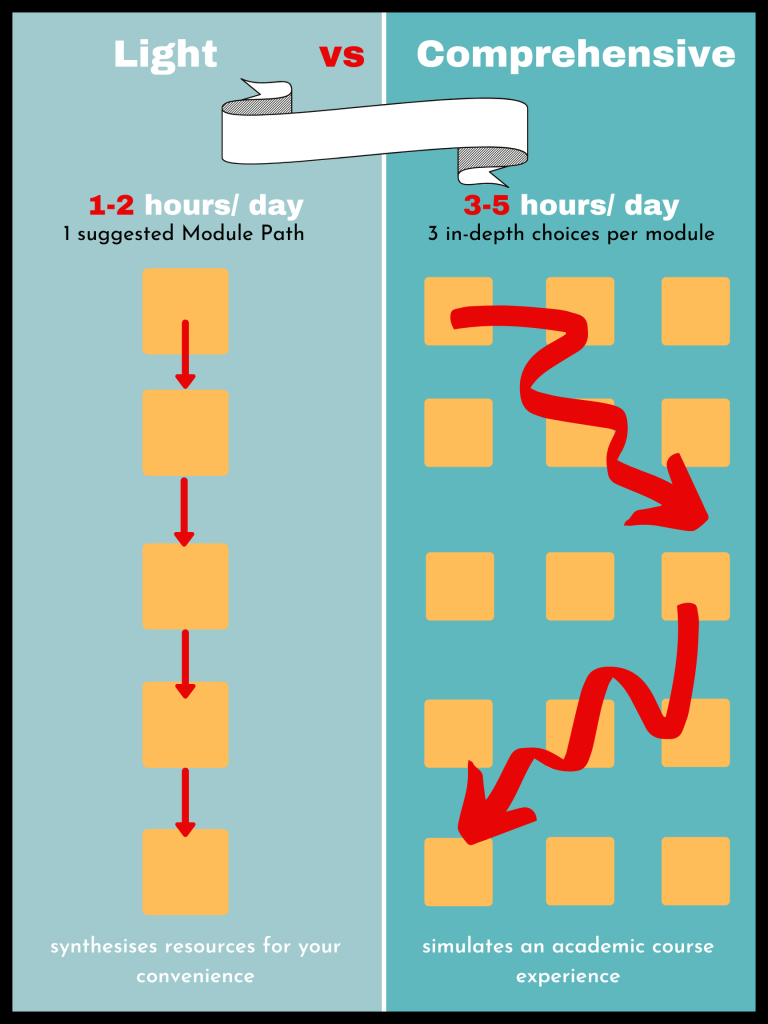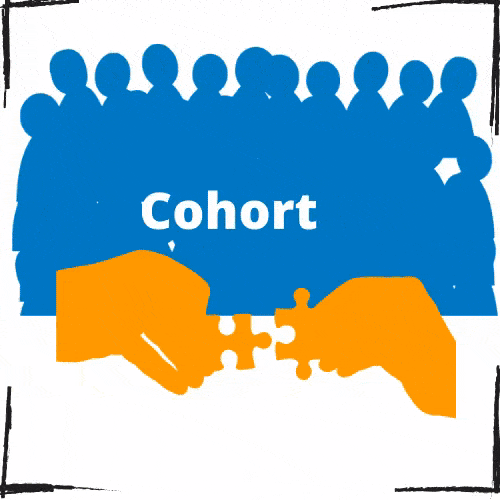Overview
U of L Teaching Centre
1. Preamble
Welcome to the primary resource for the 2020 FIT for Online bootcamp. This resource has been designed by the Teaching Support Staff at the University of Lethbridge Teaching Centre to address the need to support our instructors moving to a completely online delivery model as a response to the COVID-19 outbreak, but we hope the resource will have a longer lasting and wider appeal.
There are references throughout the resource to course material and to collaborative activities that are located within a securely-hosted University of Lethbridge specific course, but all other aspects of this resource are openly published under the Creative Commons Attribution Noncommercial ShareAlike license.
2. Practical Steps to Teaching and Supporting your Students Online
Fit for Online Learning (FitFOL) is designed to support Higher Education professionals with little or no previous online teaching experience. We will explore theoretical frameworks behind online teaching to guide you in the redesign or creation of online course materials and activities. You will take practical steps towards teaching and supporting your students online. In addition to reflecting on your pedagogical preferences and preparing concrete elements for your own online courses, you can connect with your peers to share expertise and resources.
3. Be an Online Student
By participating in this course, you can step into the shoes of a student. This perspective may help you empathize with your own students, who forced into the online delivery mode, will most certainly be facing challenges as an online learner.
4. How will this course be delivered?
Based on participant feedback from our first offering of this course, we will offer you two parallel streams of this course. Based on a needs assessment activity in the orientation, you will be streamed into either of the following :

- Light version
- The light version of this course is for those who wish to learn some basics about online pedagogy and/or those who have limited time to commit during the two week period. You will be provided with some practical key considerations in online teaching and learning. There is no expectation that you share results with the peers in your cohort as you work through the materials and activities.
- Comprehensive version
- The comprehensive version of this course will provide the participants with a thorough grounding in online teaching and learning that is both theoretical and practical. This is for participants who want to be as prepared as possible to deliver excellent online teaching. Again, there will not be any expectation that you share your progress with the instructors or your peers in the cohort.
Both streams of this course will be offered twice this summer: one two-week intensive offering of the course will be from June 15 – June 26. The second run of the course will be from July 13 – July 24. During that time, the Teaching Centre Pedagogy Team will be here to support you in the process of building your own online courses.
There are two possible ways to move through the either stream of the course: A) With a cohort or B) Independently

A) With a cohort
For those who wish to actively participate with a cohort, we will facilitate the 5 modules in the order below. Note that you can request final feedback on resources or activities that you create.
Week 1
- Monday & Tuesday: Building Community and Student Engagement in an Online Course
- Wednesday & Thursday: Creating a Course Syllabus and Structure for Online Teaching
- Friday: Facilitating Learning Online
Week 2
- Monday: Facilitating Learning Online (Continued)
- Tuesday & Wednesday: Designing Activities & Assessment for Online Learning
- Thursday & Friday: Working with the Online Learner
B) Independently
For those who prefer to work independently without any cohort interaction, there is no set path. Instead you can work through any of the modules at your own pace.
We have built in this flexibility to accommodate the widest range of participants possible, recognizing the limitations and constraints certain individuals are facing at this point. However, as creators of this course, we strongly recommend everyone to participate actively in the course in order to receive the full benefits.
Please note: The Teaching Centre will also be hosting focused live sessions (OPTIONAL). The sessions will be held three times a week from 2 – 3pm and the Zoom link is available on the top of the U of L FitFOL Moodle course page.
6. FitFOL2020 is an OER
Note: You can download the book in several different formats by clicking on Download This Book on the top right of the cover page. Since this book comes with the open CC-BY-NC-SA license, you have the following five permissions for use, granted you don’t change the license type:
- Retain – the right to make, own, and control copies of the content (e.g., download, duplicate, store, and manage)
- Reuse – the right to use the content in a wide range of ways (e.g., in a class, in a study group, on a website, in a video)
- Revise – the right to adapt, adjust, modify, or alter the content itself (e.g., translate the content into another language)
- Remix – the right to combine the original or revised content with other material to create something new (e.g., incorporate the content into a mashup)
- Redistribute – the right to share copies of the original content, your revisions, or your remixes with others (e.g., give a copy of the content to a friend)
Open Educational Resources

